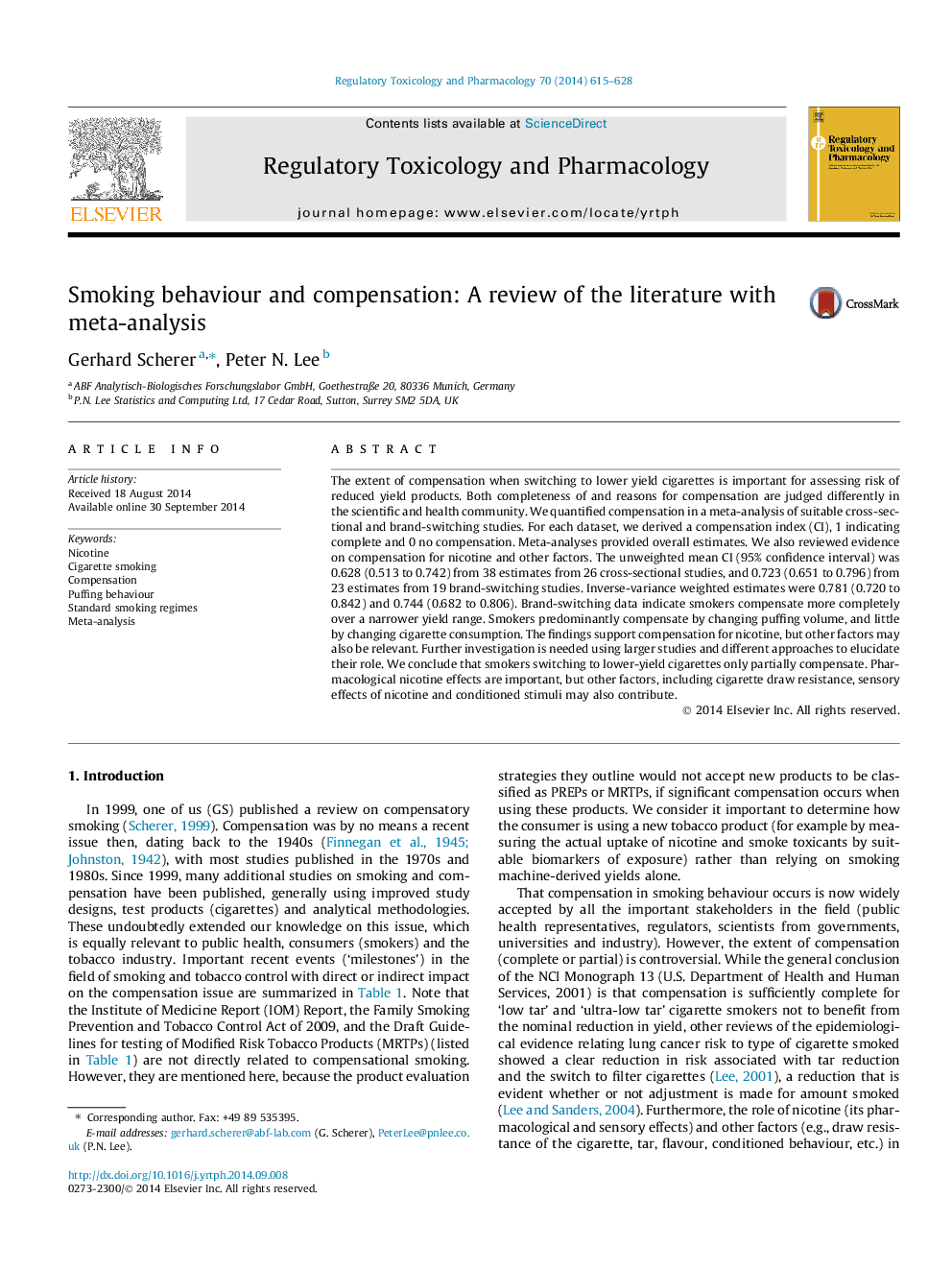| کد مقاله | کد نشریه | سال انتشار | مقاله انگلیسی | نسخه تمام متن |
|---|---|---|---|---|
| 5856444 | 1562130 | 2014 | 14 صفحه PDF | دانلود رایگان |
- How much smokers compensate when switching to lower-tar products is contentious.
- We derived a compensation index for 26 cross-sectional and 19 brand-switching studies.
- Weighted estimates (95% limits) were 0.781 (0.720 to 0.842) and 0.744 (0.682 to 0.806).
- Smokers only partially compensate, mainly by changing puff volume.
- The results support nicotine compensation, but other factors may also be relevant.
The extent of compensation when switching to lower yield cigarettes is important for assessing risk of reduced yield products. Both completeness of and reasons for compensation are judged differently in the scientific and health community. We quantified compensation in a meta-analysis of suitable cross-sectional and brand-switching studies. For each dataset, we derived a compensation index (CI), 1 indicating complete and 0 no compensation. Meta-analyses provided overall estimates. We also reviewed evidence on compensation for nicotine and other factors. The unweighted mean CI (95% confidence interval) was 0.628 (0.513 to 0.742) from 38 estimates from 26 cross-sectional studies, and 0.723 (0.651 to 0.796) from 23 estimates from 19 brand-switching studies. Inverse-variance weighted estimates were 0.781 (0.720 to 0.842) and 0.744 (0.682 to 0.806). Brand-switching data indicate smokers compensate more completely over a narrower yield range. Smokers predominantly compensate by changing puffing volume, and little by changing cigarette consumption. The findings support compensation for nicotine, but other factors may also be relevant. Further investigation is needed using larger studies and different approaches to elucidate their role. We conclude that smokers switching to lower-yield cigarettes only partially compensate. Pharmacological nicotine effects are important, but other factors, including cigarette draw resistance, sensory effects of nicotine and conditioned stimuli may also contribute.
Journal: Regulatory Toxicology and Pharmacology - Volume 70, Issue 3, December 2014, Pages 615-628
